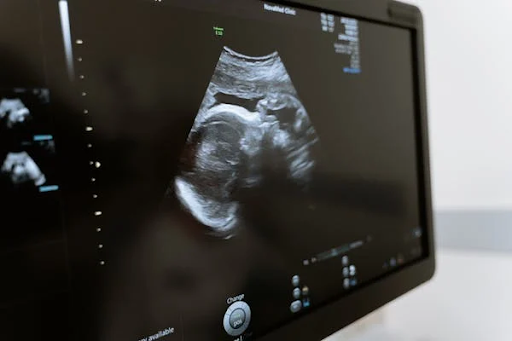 Many women are overjoyed to see a positive pregnancy test. However, some experience what’s known as an ectopic pregnancy. According to Marla Ahlgrimm, an ectopic pregnancy happens when a fertilized egg implants anywhere other than the uterus.
Many women are overjoyed to see a positive pregnancy test. However, some experience what’s known as an ectopic pregnancy. According to Marla Ahlgrimm, an ectopic pregnancy happens when a fertilized egg implants anywhere other than the uterus.
Marla Ahlgrimm explains that the most common occurrence of ectopic pregnancies happens in the fallopian tubes. Essentially, the egg gets “stuck,” and a fertilized egg grows into a live embryo. Often called tubal pregnancy, ectopic pregnancy does not result in a viable birth. The fertilized egg does not have what it needs to survive and, should it continue past about six to seven weeks, the mother’s life is in danger.
Symptoms Of An Ectopic Pregnancy
An ectopic pregnancy results in many of the same signs as a typical pregnancy. Women may experience missed periods, nausea, breast tenderness, and a positive pregnancy test. Unfortunately, unlike a healthy pregnancy, an ectopic pregnancy is usually discovered when a woman reports significant pelvic pain and unusual vaginal bleeding, leading to her doctor. Women with an ectopic pregnancy who experience blood leakage from the fallopian tube may experience shoulder pain or have an unusual urge to push a bowel movement through.
Sometimes, Marla Ahlgrimm says that an ectopic pregnancy can result in life-threatening symptoms, such as shock, fainting, and heavy bleeding.
Causes And Risk Factors
According to Marla Ahlgrimm, all women are at risk of an ectopic pregnancy, despite the number of healthy pregnancies they’ve had before. However, there are some risk factors that might make one woman more susceptible than another. These include having had a previous ectopic pregnancy. Marla Ahlgrimm also explains that women with gonorrhea, chlamydia, or other sexually transmitted infections are at a higher risk of ectopic pregnancy due to increased inflammation throughout the reproductive system.
Marla Ahlgrimm also notes that women who are currently undergoing IVF treatments or who use an IUD may experience tubal pregnancy at a higher rate than others. Even women who have been “sterilized” through tubal ligation are at a higher risk of tubal pregnancies since a fertilized egg can’t pass to implant in the uterus. Further, Marla Ahlgrimm notes that women who smoke are also at a greater risk.
Prevention
Unfortunately, Marla Ahlgrimm notes that it is not possible to prevent every potential instance of a tubal pregnancy. However, she advises that women refrain from having multiple sexual partners. She explains that this reduces the risk of certain conditions, such as pelvic inflammatory disease. Those who smoke are also advised to quit.
How Is An Ectopic Pregnancy Diagnosed?
If you suspect that you are experiencing an ectopic pregnancy, contact your doctor as soon as possible. They will first do a physical exam. Marla Ahlgrimm says that your doctor will feel for a mass in your ovaries or fallopian tubes. They will also ask you to pinpoint any pain or tenderness that you feel. You will also be given a blood test to determine levels of hCG in the blood. Your doctor may also order an ultrasound to check for implantation location and/or internal bleeding.
Treatment
 Unfortunately, Marla Ahlgrimm explains that there is no treatment for ectopic pregnancy that would result in a live birth. The pregnancy must be terminated, and this is often done by providing a dose of methotrexate, which works to halt cellular growth and then dissolve existing embryonic cells. Emergency surgery may be necessary for those experiencing heavy bleeding.
Unfortunately, Marla Ahlgrimm explains that there is no treatment for ectopic pregnancy that would result in a live birth. The pregnancy must be terminated, and this is often done by providing a dose of methotrexate, which works to halt cellular growth and then dissolve existing embryonic cells. Emergency surgery may be necessary for those experiencing heavy bleeding.
Marla Ahlgrimm says that an ectopic pregnancy is a heart-wrenching experience for women. There is no way to move an implanted embryo, and, unfortunately, ectopic pregnancies can be fatal for the mother. Marla Ahlgrimm urges women who believe they are pregnant to be seen by a qualified healthcare professional as soon as possible.













 Marla Ahlgrimm has co-authored two ground-breaking books,
Marla Ahlgrimm has co-authored two ground-breaking books,